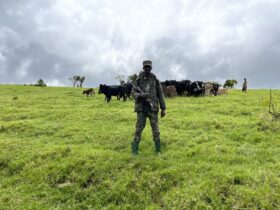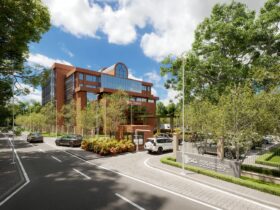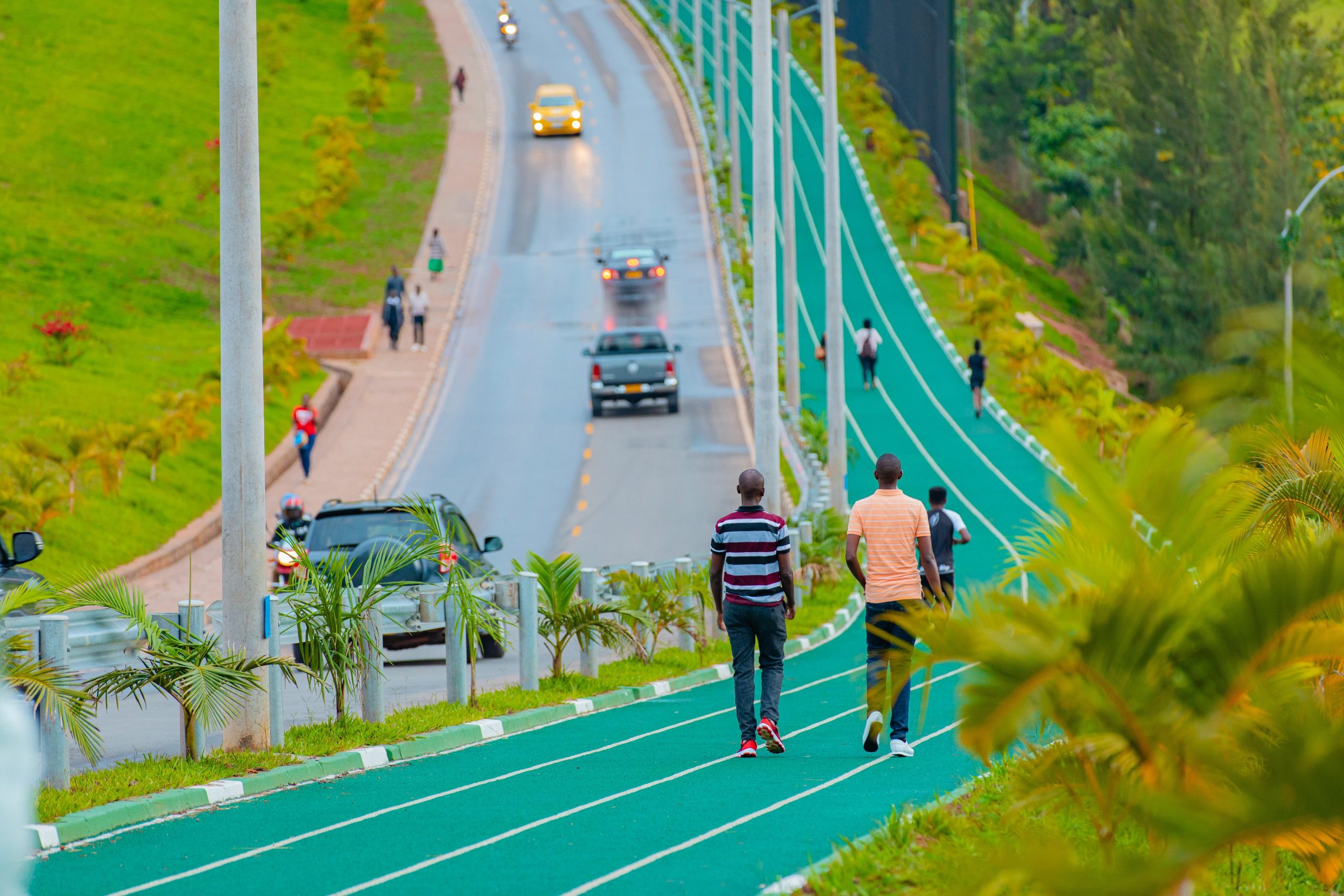 The cleaner the University of Pretoria assigned to my apartment was called Violet. A mother in her late forties. She was very pretty, always smiling. She liked me and encouraged me to eat more. ‘Look at you, you are skinny, you must eat!’ she said to me. I liked Violet, I called her Aunt. In my mind she was part of that sacrificed generation of the anti-apartheid struggle. Her children must be in university by now, I thought to myself, soon they will get her out of this life…
The cleaner the University of Pretoria assigned to my apartment was called Violet. A mother in her late forties. She was very pretty, always smiling. She liked me and encouraged me to eat more. ‘Look at you, you are skinny, you must eat!’ she said to me. I liked Violet, I called her Aunt. In my mind she was part of that sacrificed generation of the anti-apartheid struggle. Her children must be in university by now, I thought to myself, soon they will get her out of this life…
One morning I went back to my apartment to look for a book I needed. I found a young woman in her early twenties washing my dishes with a baby of school going age playing near by.
Who are you, where is Violet? She is not feeling well today, I am her daughter… I went to my room and sat down, I couldn’t contain my tears. I saw three generations, sacrificed. Violet is a cleaner, her daughter who is younger than me is a cleaner, her grand daughter, who should be in nursery school, is likely to become a cleaner too.
The situation in South Africa is heartbreaking. I didn’t live there during apartheid. But the life of black people was heartbreaking to me when I lived there in 2012-13.
Buses bring black mothers at 6:AM to come and clean the city before the white man wakes up, then spend the day guarding white kids, while theirs are unattended to in the townships – now called locations. That’s why juvenile pregnancy, HIV/AIDS and drug abuse are prevalent among the black youth.
In Pretoria, we would go to a restaurant with our white colleagues and the waiter wouldn’t even look at us. They would come with the menu, address our white colleagues and say: ‘what is your friend eating’ in their brutal accent which I am still traumatized about!!!
I was once ejected with my colleagues from a ‘whites only’ bar. There are many of those in Pretoria; There is no written sign, but we knew better than to go into them, because we would be beaten up as black South Africans look by, or laugh at us. That’s right: their spirit is broken!
In the university cafeteria, garden, etc., every race is segregated; the Blacks, the ‘Colored’, the Whites, the Indians, the Arabs… Mixing was the exception.
A young friend in the faculty of Agriculture was complaining to me that lectures in his classroom are given in Afrikaans, even though he doesn’t understand it. A week later or so, English notes are given to him.
While I was there, a national research found that the problem with primary education in South Africa is that teachers have no knowledge of the subject matter; that’s right: Researchers had administered a Primary four test to teachers of Primary four class; most failed.
When a young white friend interviewed for a job as a Clark for a Judge of the Constitutional Court, she was interviewed in Afrikaans. She said she studied her law in English. This judge, who is also a frequent speaker in my classroom at the University, laughed at her and told her; you foolish girl, this position is yours, but if you don’t protect it it will be taken by them… (Meaning blacks)
Comparing South African stability and Zimbabwean economic problems is exactly like comparing the life of a captive prisoner in a cage being fed without work, or doing forced labor, and that of a freedom fighter in the struggle to liberate his people; fighting, loosing friends on the battlefield, but foreseeing the light at the end of the tunnel.
Thanks to the land reform program more than 100,000 families of Zimbabweans are employed in small scale farming. Contrary to popular belief and western media intoxication, Zimbabweans are way better off than, say, South Africans where 80% of the land is owned by 3% of the white population; or Cameroonians where most of the Private Sector is in the hands of French companies…
Today Zimbabweans are the most educated people on the African continent. They are also the most brilliant men and women I have ever met, and the best teachers I have ever had. That is mainly thanks to Robert Mugabe. I hope to meet him next month when he comes to Rwanda for the African Union Summit, and thank him on behalf of all the black people who are too scared to. And tell him I know, I saw and I understand what our people is going through
By sunset the buses round all the mothers up, take them back to the ghettos. On the bus, they are exhausted but they can’t sleep, the same songs of grief as during the apartheid era… As they approach the ‘locations’ though, silence slowly regains the bus, as each mother fears of drama that frequently meets her at dusk, in her deserted, child-headed household…















Leave a Reply